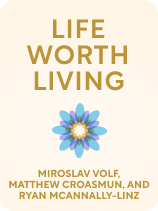

This article is an excerpt from the Shortform book guide to "Life Worth Living" by Miroslav Volf, Matthew Croasmun, and Ryan McAnnally-Linz. Shortform has the world's best summaries and analyses of books you should be reading.
Like this article? Sign up for a free trial here.
How do you view death? How can your belief about death motivate you to live your life well?
What you believe about death affects the way you live your life, for good or for bad. Life Worth Living discusses what a few philosophers and religious traditions say about death and how these beliefs put life into perspective in various ways.
Read more to learn how different views of death might give you motivation for living life well.
Death as Motivation for Living Life Well
According to authors Miroslav Volf, Matthew Croasmun, and Ryan McAnnally-Linz, your beliefs about death can motivate you to act in certain ways while you’re still alive. The authors describe four different views of death: two that characterize death positively, one that characterizes death negatively, and one that characterizes death neutrally. Let’s explore those philosophies and how they might provide motivation for living life well.
View 1: Death Is Good (Plato)
According to the ancient Greek philosopher Plato, death is good because it separates your everlasting soul from your ephemeral body. Plato believed the soul is superior to the body because it’s your true identity and can be improved. Your body, on the other hand, is fundamentally worthless, and it can even degrade your soul by distracting you from the pursuit of wisdom. The authors explain that if you believe, like Plato, that your soul lives on forever, you’ll be motivated to do two things: You’ll spend your life improving your soul for the afterlife, and you’ll approach death with a positive outlook.
(Shortform note: Experts note that Plato came to believe that humans have an immortal soul through logical inference—in fact, he made four total arguments in favor of the soul’s immortality. But other philosophers have used logical inference to come to the opposite conclusion—that humans don’t have anything that resembles a soul, everlasting or not. Regardless of your stance on the soul, there may be other reasons to view death positively: For example, some people believe that death releases you from the cycle of human suffering.)
View 2: Death Is Good (Hägglund)
The modern philosopher Martin Hägglund likewise argues that death is good because it makes life more meaningful. The authors explain that Hägglund believes we can only truly care about things that have the potential to end. If we knew life would last forever, we wouldn’t take pains to nurture, preserve, or enhance it (actions that amount to care). If you agree with Hägglund, death can motivate you to act now and make the most of the present.
(Shortform note: The authors explain that Hägglund believes death is a motivator because it delimits your time on earth, but that’s not the full extent of Hägglund’s argument: He also argues that traditional religions are counterproductive to living well because they teach you to focus on the potential of an afterlife rather than what you can accomplish in this mortal life. Hägglund suggests that “secular faith” is a better alternative—this involves devoting yourself to activities that feel meaningful to you and trusting that these activities will turn out to be worthwhile later in life, even if you have no assurance that they will. For example, this could take the shape of choosing to pursue a new relationship with someone special, even if you’re not sure it will work out.)
View 3: Death Is Bad (The Apostle Paul)
The Christian apostle Paul believed that death is bad because eternal life is God’s will. Volf, Croasmun, and McAnnally-Linz explain that Paul believed God intended to make humans immortal, but we lost that privilege because we sinned and became mortal instead. Since death is a punishment, it’s natural to feel sad, frightened, and negative about it. However, according to the Christian faith, believers can overcome physical death. Just as God resurrected Jesus after he was crucified, he gives believers the gift of a second chance at life by resurrecting their bodies after death. According to Paul, this means that death can motivate you to live well by pursuing eternal life through Christian belief, which leads to resurrection.
(Shortform note: Belief in resurrection isn’t universal among Christians—a recent survey showed that about a quarter of Christians living in the UK don’t believe Jesus was resurrected, while about a third don’t believe in eternal life for believers. However, most Christians believe that death is a bad thing that can be overcome by resurrection, which may account for the fact that Western countries are overwhelmingly death-denying: A negative attitude toward death leads to collective death-related anxiety, which may be ameliorated by one’s belief they’ll be resurrected.)
View 4: Death Is Neutral (Thich Nhat Hanh)
Volf, Croasmun, and McAnnally-Linz state that Buddhists believe your sense of self is an illusion; you’re not a permanent personality, but a dynamic process that’s forever unfolding. This applies to Buddhist beliefs about death, too—death is just a part of the process, and it’s no more meaningful or final than any other part since you continue to transform afterward. According to the Buddhist thinker Thich Nhat Hanh, viewing death as a neutral change in your state of being motivates you to do two things: First, you’ll embrace death instead of dreading it. Second, since all fear is connected to your fear of death (for example, perhaps you fear spiders because they could be venomous), you’ll let go of other fears you have and enjoy life more.
| Accept Death, Let Go of Fear Buddhist writer Norman Fischer uses scientific concepts to support the idea that life and death are parts of an endless cycle of transformation: He explains that when you’re born, it seems like a brand new person has entered the world, but you’re not truly new. Rather, you’re made up of a combination of preexisting elements—elements that existed within your parents and their ancestors before them—that have been transformed by biological processes into the shape of a newborn. Likewise, when you die, your body decomposes, and the elements that you’re made of don’t disappear—they get recycled. In this way, you’re eternal: Everything that you are preceded your birth and will continue after your death.) As for whether all your fears boil down to your fear of death, there’s some scientific merit to this idea. Experts believe that we evolved fear as a survival mechanism that alerted us to immediate threats to our lives. If your ancestors didn’t have fear, they might have taken risks (like petting a large, fuzzy spider) that could have led to their deaths and the end of their bloodline. But not every fear is well-founded—for example, if you suffer from post-traumatic stress disorder (PTSD), you might have an outsized fear response to relatively harmless stimuli. To cope with your fears, Nhat Hanh recommends being mindful of them: nonjudgmentally noticing them when they arise and then welcoming them as part of life. |

———End of Preview———
Like what you just read? Read the rest of the world's best book summary and analysis of Miroslav Volf, Matthew Croasmun, and Ryan McAnnally-Linz's "Life Worth Living" at Shortform.
Here's what you'll find in our full Life Worth Living summary:
- What a life philosophy is and why you should have one
- The four key components of a good life philosophy
- Why contemplating death can motivate you to live more fully






